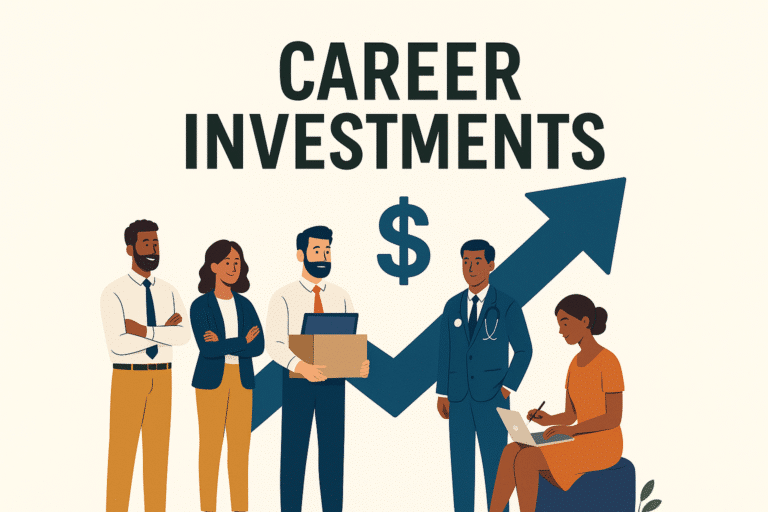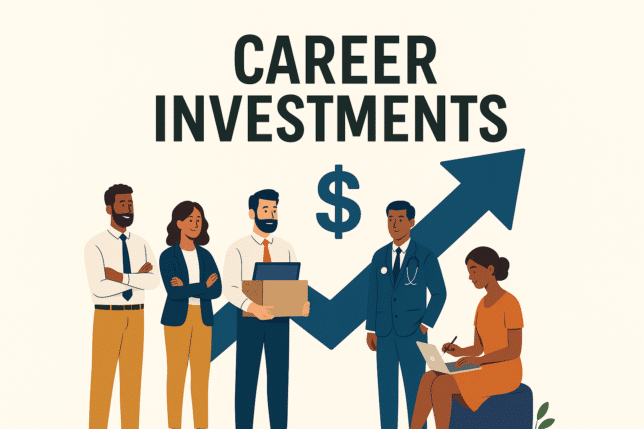Staying motivated in 2025 isn’t just about hype or willpower — it’s about building systems that actually sustain your focus.
In a world of constant notifications, changing priorities, and rising stress levels, the secret to reaching your goals lies in creating clarity, consistency, and purpose.
In this article, 17 experts share their most actionable motivation tips for 2025 — from rewiring your mindset and regulating your energy to crafting daily habits that build unstoppable momentum.
Whether you want to grow your career, improve your health, or find more balance in life, these science-backed strategies will help you stay motivated and achieve your biggest goals this year.
Why Motivation Feels Harder — and How to Stay Consistent
Between digital overload, economic uncertainty, and the pressure to constantly perform, maintaining motivation has become harder than ever. Yet, research shows that consistency and emotional regulation — not raw willpower — drive long-term success.
That’s why these experts emphasize grounded strategies: simple daily actions, routines, and mindset shifts that help you stay consistent even when motivation dips.
17 Actionable Tips for Staying Motivated and Achieving Goals
Discover seventeen practical approaches that can transform how you set, pursue, and accomplish your most important objectives without complicated systems or overwhelming methods.
Reframe Your Daily Mental Questions
My #1 actionable tip is reframing the questions your brain asks daily. After coaching hundreds of high-achieving women, I’ve seen how the wrong internal questions kill momentum faster than any external obstacle.
I had a client who was stuck asking, “Why is this so hard for me?” every morning. Her business plateaued for eight months. We shifted her daily question to, “What would success require from me today?” Within six weeks, she landed her biggest contract yet — not because her strategy changed, but because her brain started filtering for solutions instead of problems.
Your Reticular Activating System (RAS) is incredibly responsive to the questions you feed it. When you ask, “What if I fail?” your brain hunts for failure evidence. Ask, “How can I fund this?” and it searches for opportunities. The question literally shapes what you notice and act on.
Write down the question looping in your head right now about your 2025 goals. If it shuts you down, reframe it into something that opens possibilities. Your brain is already working — just make sure it’s working for you, not against you.
Dr Barbara Eaton, Coach, Dr Barbara Eaton
Anchor Each Day With Consistent Routine
The single most effective way I’ve found to stay motivated and actually reach big goals is to anchor each day with a non-negotiable routine that supports both your body and your mind. For me, that means waking up early, hydrating, and fueling with nutrient-dense foods before I touch a single email. It sounds simple, but that consistency builds momentum.
I learned this during my own health battle years ago, when everything depended on whether I could show up for myself day after day. The progress was never about giant leaps. It came from the discipline of doing small things repeatedly until they compounded into real results.
In 2025, with so many distractions and so much noise, having one daily ritual you refuse to compromise on creates focus. It reminds you that your health and your purpose come first. When you keep that promise to yourself, the motivation to achieve your larger goals doesn’t fade, it gets stronger.
Dr. Richard Drucker, Board Certified Founder & CEO, Drucker Labs
Regulate Your Nervous System First
My #1 tip is to regulate your nervous system before you take action. Most people set big goals while stuck in stress or survival mode, which leads to overcommitting, burnout, and giving up. When you start from a regulated state of calm, steady, and clear, you make aligned decisions, follow through more consistently, and sustain energy over time. It’s effective because motivation isn’t about hype; it’s about capacity, and capacity comes from a nervous system that feels safe.
Karen Canham, Entrepreneur/Board Certified Health and Wellness Coach, Karen Ann Wellness
Surround Yourself With Visual Goal Reminders
Using visual reminders all around the house will help you stay on track with your goals and motivated until the end of the year. When big plans start to feel out of reach, having images, quotes, or even just key words where you can see them each day is a constant push to keep going.
For instance, a vision board keeps your priorities visible, helps your brain focus on what matters most, and makes it easier to track your progress. I’ve seen how some people tend to drift when their goals are out of sight, but when those reminders are right in front of you, it’s much harder to lose focus or motivation. Even something as simple as a sticky note on your laptop or a photo on your lock screen can act as an anchor and help turn big ambitions into steady, daily action.
Bayu Prihandito, Psychology Consultant, Life Coach, Founder, Life Architekture
Tie Your Goals to Your Identity
My number one tip for staying motivated in 2025 is to tie your goals to your identity.
Instead of just saying, “I want to run a marathon,” or “I want to grow revenue 20%,” ask yourself who you want to become. Maybe it’s, “I’m the kind of person who doesn’t quit on tough things,” or “I’m the kind of leader who creates opportunities for my team.”
When goals are linked to identity, they tend to stick. Psychologist Daphna Oyserman’s research shows that setbacks get reframed as tests of who you are, not signs of failure. Self-determination theory also backs this up: people who see their goals as part of themselves stay more resilient, engaged, and consistent.
That shift from “What do I want to achieve?” to “Who am I becoming?” makes goals feel meaningful even when things get messy. And in 2025, when change and distraction are everywhere, that kind of resilience matters most.
Hilan Berger, CEO, SmartenUp
Write Goals by Hand Every Morning
My number one tip for staying motivated and hitting big goals in 2025 is writing them down every single morning by hand. There’s something powerful about putting pen to paper. It slows you down just enough to really connect with what you’re working toward.
I keep a simple notebook on my desk and before I touch my phone or open my laptop, I write my top three goals for the day and one big long-term goal I’m chasing. Some mornings I don’t feel like doing it, but the act of writing forces me to recommit. It keeps me focused when things get messy or overwhelming because I can literally see my priorities staring back at me. For me, that daily ritual is the difference between drifting and driving toward what matters.
Rick Elmore, CEO, Simply Noted
Put Your Reputation on the Line
The fastest way to stay motivated is to put your reputation on the line.
Tell your family and friends the one goal you are chasing, whether it is a fitness milestone or a business move. I have found this to be the most powerful accountability tool because no one wants to be the guy who says they will do something and never delivers. When I was training for a marathon, every time I saw my mates they asked how far I had run and what time I hit. When I started my gym gear brand, it was the same, people kept checking in and that pressure pushed me to keep showing up.
Adam Boucher, Head of Marketing, Turtle Strength
Stay Below the Media Noise Fray
In 2025, staying motivated, for me, means keeping just slightly below the fray. Between the political climate, polarization, ongoing conflicts, an unpredictable economy, rapid shifts in technology, and constant social upheavals, there’s no shortage of uncertainty or distraction. Add to that the fact that negative news almost always dominates the headlines, and it becomes clear that I need to be intentional about limiting my media consumption.
Of course, balance looks different for everyone, so this isn’t blanket advice. But not getting sucked too deeply into the noise is critical. For me, that means consuming enough to understand the forces that may affect my business and life, while cutting out the endless cycle of commentary and outrage. Striking this balance isn’t just about protecting mental clarity; it’s about preserving the focus and motivation I’ll need to actually hit my goals in 2025.
Jim Hickey, President, Perpetual Talent Solutions
Take Strategic Mental Breaks
I take plenty of mental breaks. What keeps me motivated and pushing forward is knowing when to stop pushing. I know that pushing too hard can sometimes be counterintuitive. If you are constantly grinding, pushing through exhaustion, and stretching your limits, your brain gets fatigued, causing depression-like thoughts and feelings. When the brain fatigues, motivation crashes.
I have learned that taking mental breaks isn’t a luxury; it is a powerful performance strategy. When I feel mentally exhausted, I engage in activities that can help me rejuvenate and refocus. This can be jogging during the lunch hour, taking a hot/cold shower, taking my pet dog for a walk, or simply staring out the window. These activities shift the brain back into a default mode network, letting my thoughts flow freely.
Ironically, stepping away from work pressure and noise often leads to better breakthroughs. Some of my best work moments and insights in 2025 have come when I let my mind wander freely. This is because creativity tends to manifest well in moments when the mind is allowed to roam.
So, when I hit what feels like a dead end, I don’t force myself to push harder; I strategically step back and let my mind reset. When the brain is in default mode, you are not only using less cognitive energy, you’ll probably find you’re more creative as well.
Luke Patterson, Co-Founder / Senior Mortgage Broker, Koalify
Conduct Quarterly Future-State Reviews
One strategy that’s been highly effective for achieving big goals is conducting quarterly future-state reviews. To do these, we start by identifying 1-2 major goals we plan to achieve in the next quarter. We then walk through what the company will look like once those goals are achieved, and reverse-engineer the steps we’ll need to take to get there.
I find this is useful for both achieving major goals and maintaining motivation. The main reason is that it keeps the vision tangible. Instead of an abstract goal like “grow market share,” you get a clear, detailed picture of your end state. That concrete detail helps those objectives to feel more real, and helps team members to see how they’ll fit in that improved future workplace. This, in turn, creates a sense of collective ownership, where the vision belongs to the entire team rather than just me as the leader. It’s also a very effective way to identify the specific, practical steps we need to take to reach that end point, turning vision into execution without losing momentum.
Jon Hill, Chairman & CEO, The Energists
Break Goals Into Weekly Public Checkpoints
Decompose your largest objective into weekly sprints having publicly visible checkpoints.
I have worked on dozens of software development projects, and after I handled most of them, I found that traditional annual planning does not work since motivation will always self-change. The human brain finds it hard to reason about future rewards that are abstract in nature, but ones based on a feedback loop in the present are highly motivating.
This is the thing that really works: Fire up your big 2025 objective and break it into 52 weekly milestones. Share your progress on LinkedIn or with your team every Friday. This forms my so-called micro-deadlines and social pressure.
The technique which I implemented for learning machine learning algorithms last year was to master one new concept each week and then blog about it on our company blog. I missed a week, and it was necessary to talk to my audience about my failure. This social aspect made a goal that seemed too big each year appear achievable — in other words, not too difficult each week.
The mind behind this is interesting. Research indicates that we are 65 percentage points more likely to finish tasks if we pledge them to another individual. With weekly deadlines at issue, the percentage rises to 95.
The majority of the population have January goals and fail by the third month since they have no accountability in between. Walking around and publicly uploading sprint updates on a weekly basis hacks your optimal reward system, transforming long-term goals into short-term achievements that spiral over twelve months.
Rahul Jaiswal, Project Manager, Geeks Programming
Focus on What You Can Control
I focus on what I can control and accept what I can’t control. I’m a big fan of stoicism, which emphasizes focusing your energy on what you can control. There are some things I control, while others I simply can’t.
For example, I know very well that I can’t control market trends, the economy, other people’s actions, or external competition. However, I can control my own perspective and response. Therefore, it is important to focus on what is within your control, such as assembling a focused team, building an inclusive company culture, improving customer experience, and refining internal processes. Don’t worry about external factors that are out of your control.
Concentrating on the controllable aspects of my business helps me maintain motivation among my team members. Implementing this mindset involves regular team discussions to identify all factors within our control and developing strategies accordingly.
I encourage my team members to speak up when they are uncomfortable with something and contribute ideas to move the business forward. My primary objective is to create a more engaged and motivated workforce.
Mitchell Cookson, Co-Founder, AI Tools
Connect Goals to Personal Meaning
My top actionable tip for staying motivated in 2025 is to make sure the goals you set are tied to something that actually matters to you. I’ve seen how much easier it is to stay on track when there’s a clear purpose behind what you’re working for. If you know why a job matters, whether it’s safety, comfort, or value, you’re more likely to be motivated and do it properly. When the reason is clear, the work becomes meaningful, and motivation comes naturally.
I also focus on breaking bigger goals into smaller, achievable steps. Celebrating these small wins helps maintain momentum, especially on days when progress feels slow. It’s the small victories that remind you that you are moving forward and that your efforts are making a real difference.
What makes this approach work is that it shifts the focus from chasing numbers or deadlines to working toward something meaningful. Pressure alone only lasts so long, but purpose has staying power. That sense of purpose is what carries you through the slower stretches and the setbacks. For me, motivation comes less from thinking about the big finish line and more from knowing each step I take has a reason behind it. When you stay connected to the reason behind your goals, you build the kind of steady momentum that makes achieving them much more realistic.
Harry Hammond, Managing Director, Millie & Jones
Transform Gratitude Into Purposeful Action
Lately, I’ve found myself thinking more globally than ever before, and with that perspective has come a deep sense of gratitude. Social media has put international struggles, crises, and injustices right in front of us every day. It’s impossible not to feel the weight of that, and, at the same time, to recognize how incredibly privileged I am by comparison.
That awareness has reshaped how I approach my goals for 2025. As a business owner, a recruiter, and simply as an individual, I’ve realized that staying motivated isn’t just about ambition or growth targets. It’s about grounding myself in everything that’s going right in my life: the opportunities I’ve been given, the support networks I can lean on, and the freedom I have to pursue my work.
But gratitude on its own isn’t enough. I see privilege as a responsibility: a responsibility to pay it forward, to use what I’ve been given to open doors for others, and to create opportunities that might not exist otherwise. In recruiting, that might mean amplifying underrepresented candidates or pushing for fairer hiring practices. On a personal level, it means finding ways to give back, whether through mentorship, community involvement, or even small daily choices that support others.
In short, my motivation for 2025 comes from a mix of gratitude and purpose: appreciating the good in my own life while staying committed to using that privilege to make a tangible difference for others.
Linn Atiyeh, CEO, Bemana
Create Non-Negotiable Daily Action Habits
The most effective tip to stay updated and achieve big goals is to create a non-negotiable habit with daily actions. Start with a list quantifying your actions, keep a measured time of say thirty minutes for these actions, and maintain consistency. For example, if you want to write a book, give twenty minutes every day without compromising on consistency even when you’re not feeling like working at all. Day by day, this will become a habit pushing you towards your end goal.
Time is not the only quantification; you can also quantify in such a way that for 1 book, you will write two hundred words every day. Keep doing it no matter how hectic your day is. Also, increasing this goal every quarter provides you a boost towards better achievements.
Ansh Arora, CEO, Inspiringlads
Distill Your Goal Into One Clear Sentence
My number one actionable tip for achieving significant goals in 2025 is to boil your primary goal down to a single, clear, affirmative sentence. This approach is effective because it shifts the focus from relying on motivation, which is a fleeting feeling, to establishing a durable sense of purpose. The very act of creating this sentence forces you to cut through the noise and distractions of daily life, providing absolute clarity on what is essential. This process transforms a vague aspiration into a concrete, personal mission.
Benjamin Knauss, Chief Information Security Officer
Keep the Long View in Mind
To reach a significant goal, you have to always keep the long view in mind. Nothing worth achieving was ever done overnight, and it can be easy to lose yourself in inching forward day-to-day. But by always keeping the macro view in mind, you’ll not only see the massive progress you’ve been able to make since you started, but you’ll also always keep the ultimate goal in your sights.
Merritt Day, General Manager, USA Hopper Shop
How to Use These Expert Motivation Tips for Maximum Results
You don’t need to implement all 17 tips at once. Start by choosing one mindset-based strategy and one action-based habit.
For example:
- If you often lose focus → try “Reframe Your Daily Mental Questions.”
- If you struggle with consistency → apply “Create Non-Negotiable Daily Action Habits.”
Combine these small, realistic changes for at least 30 days. As your motivation compounds, layer in another strategy. Over time, these habits build the internal drive that keeps you moving — even when external motivation fades.
Conclusion: Build Momentum That Lasts
Motivation fades when it’s based on emotion, but it grows when rooted in meaning and structure.
The 17 experts above show that success in 2025 isn’t about working harder — it’s about working with intention.
Start by picking one or two of these tips and apply them this week. Maybe it’s writing your goals by hand, staying below the media noise, or tying your goals to your identity.
Each small commitment strengthens your focus, sharpens your habits, and reinforces who you’re becoming — the kind of person who follows through.
Keep the long view in mind: success is never instant, but momentum compounds for those who stay consistent.
FAQ
Q1: What are the best ways to stay motivated in 2025?
A: Focus on habits, not hype. Experts recommend daily routines, emotional regulation, and clear goals tied to personal identity.
Q2: How can I maintain motivation toward long-term goals?
A: Break large goals into smaller checkpoints, celebrate progress, and use accountability — like public updates or written commitments.
Q3: Do motivation techniques really work?
A: Yes — when applied consistently. These 17 expert tips are based on proven psychological and behavioral principles for sustainable motivation.
Amit is a lifelong learner and advocate for personal growth, fueled by 15+ years in HR across various functions. His journey includes a dual Master's degree: an MBA specializing in HR and Information Technology, and another Masters dedicated to HR Management & career development. This blend of knowledge allows him to translate personal development strategies into actionable steps. Whether you're seeking career advancement or simply becoming your best self, Amit is here to share insights, tips, and inspiration to help you unlock your full potential.
















